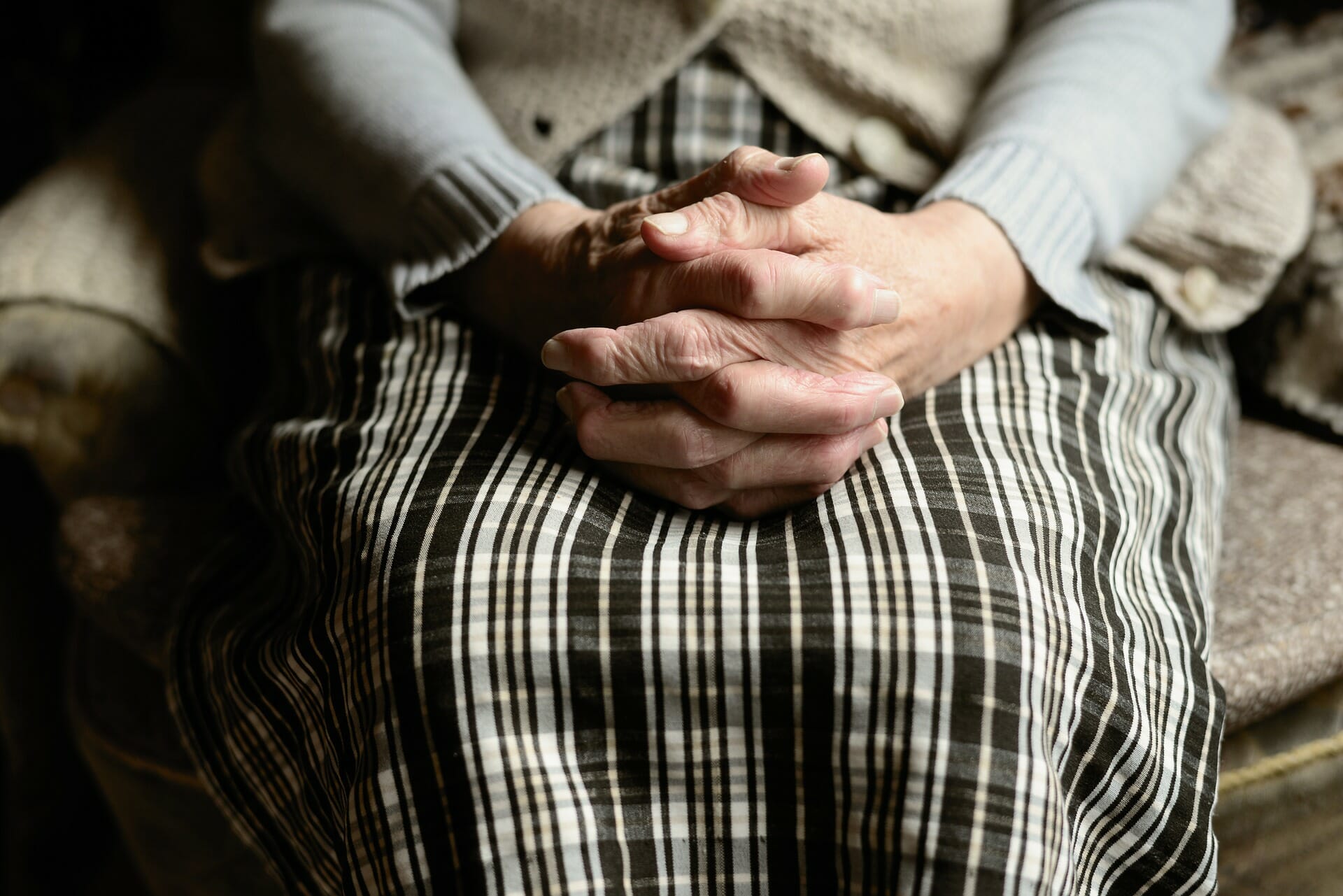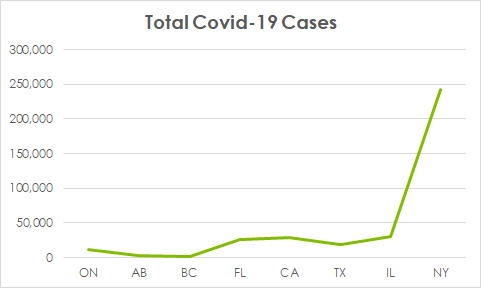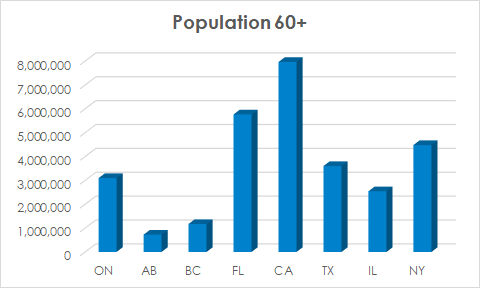While COVID-19 can make anyone sick, some populations are more vulnerable than others. Condos may have a small or very large group of people who require additional care or consistent protection from the coronavirus.
Below is some helpful information to help you identify and care for homeowners who may be more at risk of becoming fatally ill if they contract the coronavirus.
Who is at risk?
Health professionals and researchers have discovered that some populations are more vulnerable than others. These groups include:
- Anyone who is an older adult, specifically those over the age of 60
- People with underlying medical conditions such as heart disease, hypertension, diabetes, chronic respiratory diseases, and cancer
- Anyone with a compromised immune system from a medical condition or treatment
- Anyone who has may have difficultly speaking, understanding or communicating
- People who may have difficulty accessing medical care or health advice
- People who have ongoing specialized medical care or needs
- People who require ongoing supervision or support for maintaining independence
- Essential workers who are caring for people who are unwell, or who are interacting with the public
Residential communities are generally diverse, but some will have a larger senior population than others. Certain condo communities in Florida for example, may consist predominantly of people who are over the age of 55. California, Ontario, New York, and Texas all have large populations of people who are over the age of 59, and many of those individuals live in multi-unit buildings.
* This chart was created on the week of March 20, 2020. The total number of COVID-19 cases may have increased since this time as new cases continue to be reported.
People who have just moved to a new city may not be comfortable speaking or reading English, or may not be familiar with the health care system. These residents may also be at greater risk of becoming seriously ill because they may not know how to get the help they need right away.
More people, greater risk
Unlike detached homes, condos may house hundreds of people. Multiple residents touch the handles and elevator buttons every day, which means germs spread more easily and more quickly. Older residents who live in condos may be at a greater risk for contracting the virus, which is why corporations should be diligent about keeping shared spaces clean, and enforcing best practices to help keep everyone healthy.
What are the symptoms?
The majority of people with COVID-19 experience only mild symptoms. This is particularly true in the early stages of the disease. Some reports have even indicated that people with no symptoms can still transmit the virus. It is not yet known how often it happens, but it is one of the main reasons why everyone is being asked to stay home and follow any recommendations from city or state officials.
Symptoms include:
- Fever
- Cough
- Shortness of breath or difficulty breathing
- Chills
- Muscle pain
- Headache
- Sore throat
- Recent loss of taste or smell
If you are finding it very hard to breath, or are experiencing persistent pain or pressure in your chest, please seek medical help immediately.
While a healthy person may be able to recover from COVID-19 in a couple of weeks, someone who has a weaker immune system may have more trouble recovering from the virus. The illness can progress very rapidly, and be fatal in some cases. Worldwide, over 200,000 people have died from COVID-19 and according to the CDC, 8 out of 10 deaths reported in the U.S. have been in adults over the age of 64.
How to care for vulnerable populations in your community
1. Create posters or signs that provide clear instructions about best practices during COVID-19, including how to wash hands and cover coughs, using the most commonly used language in your community. Keep messages short and simple, and use graphics or images whenever possible. Use a large font, easy to read font.
Post physical copies of the signs in common areas, near elevators, entrances, mailrooms, and laundry rooms. Send these posters electronically as well if you are able to do so.
2. Create and share policies for people who are ill. You may incorporation this information into the best practices poster, or create a separate document and send/mail it out to all of your residents.
If the corporation discovers that someone in the building has COVID-19, management can inform the community that someone is sick. However, the notice should not state who the individual is, what unit they are in, or any other identifying information. Any direct requests from residents as to the identity of the individual should not be answered. Advise residents that the corporation will be in contact with public health officials, and that any directions or instructions will be followed. Sharing identifying information about the person with the rest of the community is a violation of their privacy.
3. Create a designated online space where residents can ask for help. Management may want to start a new discussion forum or group chat that allows residents to ask for help if they require someone else to pick up their groceries or medication. People who are able to help out can leave supplies in front of their neighbour’s front door.
4. Encourage residents to reach out to you if they require help right now. If you’ve got the time, you can even give your residents a call to see how they’re doing.
5. Increase cleaning requirements. While all non-essential amenities should be closed, there are a few areas that will require more attention from your cleaning staff. For example, lobby door handles, elevator buttons, garbage chutes, and laundry rooms should be sanitized several times every day. During a health crisis such as COVID-19, this is the minimum standard of care.
Shared workstations such as security desks will also need to be cleaned multiple times a day. Phones, keyboards, mice, communication tools, and devices need to be cleaned regularly so that your essential staff remain healthy.
6. Discourage residents from inviting guests, and any contractors who are carrying out non-essential repairs or renovations into their homes. Limit the number of people coming in and out of your building to minimize the spread of the coronavirus.
7. Connect with your service providers, including security, fire safety, electrical, HVAC, and waste management, to discuss their responsibilities and ensure they have business continuity plans and procedures in place. It’s important to ensure that the building is still cared for, but service provides need to do their part to protect themselves and others, too.
8. Stay informed, stay connected. New information and recommendations about COVID-19 are being released on a daily and weekly basis. Keep an eye on recommendations from health and city officials and make informed decisions based on the credible information you have. Make sure to share any new updates to community policies and procedures with your residents.
Conclusion
Each one of us plays an impor
tant role in helping to prevent vulnerable populations from getting or spreading the COVID-19 virus. Keep your community informed, encourage frequent hand washing, and if you can, take a few minutes out of your day to ensure the people who need a little extra help receive it. While it’s tough to be apart, it’s the only way we’ll be able to get together again.




